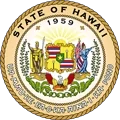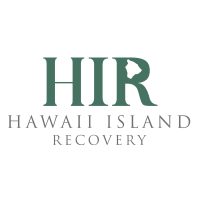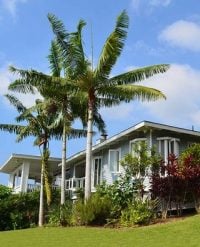Big Island Substance Abuse Council - Ka Wahi Ola Hou
Drug Rehab Center in Hilo, Hawaii
The Big Island Substance Abuse Council - Ka Wahi Ola Hou is a non-profit organization in Hilo, Hawaii that offers affordable, evidence-based services for individuals suffering from substance abuse and addiction, including counseling, detoxification, residential programs, and specialized services for women, pregnant mothers, and teenagers.
About This Hawaii Facility
Big Island Substance Abuse Council - Ka Wahi Ola Hou, situated in Hilo, Hawaii, is a dedicated inpatient treatment facility for individuals struggling with alcohol and substance addiction. With a focus on helping patients become productive members of society and live enriched lives of health and overall well-being, Ka Wahi Ola Hou stands out in its commitment to providing support and encouragement for positive change.
• Offers a Therapeutic Sober Living program that includes 24-hour care, life skills training, transportation to social activities, and therapeutic services
• Dedicated to aligning their services with the ever-evolving behavioral health field
• Provides comprehensive care for various substance use disorders, from alcohol and opioid addiction to dual diagnosis
Ka Wahi Ola Hou is accredited by SAMHSA and CARF, and is licensed by the state of Hawaii. They offer a range of levels of care, including inpatient, aftercare support, partial-hospitalization, drug rehab, sober-living/half-way, residential, and outpatient services.
The facility treats a variety of addictions and substance abuse issues, with experienced staff working closely with patients to develop personalized care plans. Treatment methods include therapy, case management, medication management, relapse prevention, education, and holistic approaches, along with ongoing support and monitoring of recovery.
Genders
Ages
Modality
Additional
Accreditations
State License
SAMHSA

CARF
The Commission on Accreditation of Rehabilitation Facilities (CARF) is a non-profit organization that specifically accredits rehab organizations. Founded in 1966, CARF's, mission is to help service providers like rehab facilities maintain high standards of care.
Conditions and Issues Treated
Rehab centers in Hawaii exist to help individuals bounce back from substance abuse. Drug addiction refers to the use of illegal drugs and improper use of prescription drugs. Substance abuse includes all problems that stem out from using psychoactive substances. Centers like Big Island Substance Abuse Council - Ka Wahi Ola Hou are here to help.
Opioid addiction is one of the most common forms of addiction Hawaii. Opioids include drugs like heroin, oxycontin and fentanyl. They are prescribed to treat pain, but they are often abused and they are addictive. The addiction is treated by detoxing the body, so it no longer needs the chemicals in the drugs. This is followed up by therapies to correct behavior and target the root of the problem.
Levels of Care Offered at Big Island Substance Abuse Council - Ka Wahi Ola Hou
This center offers a variety of custom treatment tailored to individual recovery. Currently available are Aftercare Support, Drug Rehab, Inpatient, Residential, Sober-Living / Half-Way, with additional therapies available as listed below.
Inpatient rehabilitation aims to treat severe addictions and co-occurring disorders. Depending on individual requirements, the duration of the stay at Big Island Substance Abuse Council - Ka Wahi Ola Hou ranges from four weeks to six months. Hawaii inpatient recovery guarantees that the patient resides in an environment free of drugs.
A sober living home aims to reinforce sobriety and learnings from inpatient and outpatient programs. It’s a supervised environment in Hilo, HI managed by Big Island Substance Abuse Council - Ka Wahi Ola Hou, which is guaranteed safe and free from addictive substances. There are strict rules regarding curfew and responsibilities, such as shared chores.
Residential treatment programs are those that offer housing and meals in addition to substance abuse treatment. Rehab facilities that offer residential treatment allow patients to focus solely on recovery, in an environment totally separate from their lives. Some rehab centers specialize in short-term residential treatment (a few days to a week or two), while others solely provide treatment on a long-term basis (several weeks to months). Some offer both, and tailor treatment to the patient’s individual requirements.
Aftercare Support at Big Island Substance Abuse Council - Ka Wahi Ola Hou, in short, is the support provided to a patient after they have finished treatment. It allows them to adjust to everyday life. It may entail setting them up and enrolling them in services such as Narcotics Anonymous (NA) and Alcoholics Anonymous (AA) inside a halfway house. Career coaching may also be offered to patients to help them get back into the workforce.
Therapies & Programs
Individual therapy refers to one-on-one psychotherapy between a patient and their Big Island Substance Abuse Council - Ka Wahi Ola Hou therapist. Individual therapy seeks to help identify the issues that drive and contribute to a client’s addiction or alcoholism. Another goal of individual counseling is to assist the client to learn how to manage their lives without alcohol or drugs.
Therapy for couples decreases unhealthy behavior in a relationship that can trigger addiction. Either, or both, members of the couple will be improved by this. This treatment administered by Big Island Substance Abuse Council - Ka Wahi Ola Hou still targets addiction and can also make a relationship healthier through a variety of methods.
Group therapy occurs in a group setting as opposed to a one on one setting. It benefits patients by providing a feeling of support and letting them know they are not alone. Patients at Big Island Substance Abuse Council - Ka Wahi Ola Hou also learn to build trust and understanding and gain perspective through discussions.
After experiencing trauma, it’s crucial to look for a facility that can provide trauma therapy. This approach zeroes in on the traumatic incidents that a patient has encountered in the past, recent or not. It’s been widely known that trauma can make an individual resort to alcohol or other substances to mask their troubles and pain. Trauma can originate from domestic violence, sexual abuse, an early encounter with death, sexual assault, and many more. The goal of trauma therapy at Big Island Substance Abuse Council - Ka Wahi Ola Hou in Hilo, HI is to help the patient see beyond the trauma and move forward. Mental health professionals will facilitate the patient’s journey and see to it that he or she is no longer a victim of his or her traumatic experiences and has wholly regained his or her personal power.
DBT, also known as dialectical behavior therapy, is a form of cognitive behavioral therapy (CBT) that helps people understand how their thoughts, behaviors, and feelings all connect. This can give them more control over their actions, effectively stopping self-harm ideations and attempts in some patients. It can also help put people in control over some mental struggles, like borderline personality disorder.
Most individuals suffering from addiction have low self-awareness, so they end up making poor decisions. Cognitive Behavioral Therapy (CBT) is suitable for patients recovering from an addiction of any kind. Through it, patients become more aligned with their thoughts, emotions, and behaviors, giving them a better opportunity to respond appropriately to temptations and negative feelings.
This therapy modality at Big Island Substance Abuse Council - Ka Wahi Ola Hou in Hilo, HI strengthens a person’s ability to stay on top of their emotional state and learn new stress management techniques so they won’t give in to the temptations easily. Moreover, CBT helps people communicate and express their emotions well, which can be vital in relapse management. CBT is also suitable for managing co-occurring disorders like depression and bipolar illness.
Rational Emotive Behavior Therapy sees a person suffering from substance addiction to have illogical reasoning, counterproductive actions, and does not see things clearly. REBT at Big Island Substance Abuse Council - Ka Wahi Ola Hou in Hilo, HI deals with cognition, images, and behavior extensively to rectify the client’s bad habits. The process calls for practice, reiteration, and bolstering the new way of thinking being introduced to the patient.
When it comes to maintaining sobriety, people who quit recovery without developing life skills are disadvantaged. While teaching life skills at Big Island Substance Abuse Council - Ka Wahi Ola Hou is difficult, support with aftercare helps patients learn these skills over time. Life skills include getting a career, living in a good environment, self-care, and finance management, all in Hilo, HI.
A 12-Step Program is a common method that is used to treat addiction. This format is used for both drug and alcohol treatment. It is extremely popular and successful for large numbers of people. It is a relatively simple set of steps that are done continuously in order to move through life with awareness, accountability and honesty. 12-Step programs are available in most every city in the Unites States. They are available in person, electronically and virtually through phone or web-based meetings.
Contingency management (CM) is a system that rewards patients for positive behavior. Patients may get a gift for a clean drug test. They may also get punished for negative behavior. The therapy inspires patients to engage in healthy behaviors and limit unhealthy behavior. It is effective in treating addiction and other issues.
Patient Experience
Experiential Therapy at Big Island Substance Abuse Council - Ka Wahi Ola Hou
Experiential therapy is a non-traditional treatment that uses physical activities to help work through troubling emotions. Role-playing, use of props, and re-enactments are just a few common techniques in experiential therapy at Big Island Substance Abuse Council - Ka Wahi Ola Hou. Its goal is to help people work with troubling emotions, memories, and trauma that are the source of their psychological issues
Payment Options Accepted
For specific insurance or payment methods please contact us.
Is your insurance accepted?
Ask an expert, call (888) 674-0062
Big Island Substance Abuse Council Associated Centers
Discover treatment facilities under the same provider.
- Big Island Substance Abuse Council - Kailua Kona in Kailua Kona, HI
- Big Island Substance Abuse Council - Hilo in Hilo, HI
- Big Island Substance Abuse Council - Connections in Hilo, HI
- Big Island Substance Abuse Council - Laukona House in Hilo, HI
- Big Island Substance Abuse Council - Kinoole Street in Hilo, HI
Learn More About Big Island Substance Abuse Council Centers
Additional Details
Specifics, location, and helpful extra information.
Hilo, Hawaii 96720 Phone Number(808) 961-3590 Meta DetailsUpdated April 15, 2024
Staff Verified
Patient Reviews
There are no reviews yet. Be the first one to write one.
Hilo, Hawaii Addiction Information
Hawaii has one of the highest rates of drug abuse in the nation. Methamphetamines and marijuana are the most common drugs involved in drug-related crimes in Hawaii. The state loses $500 million every year due to methamphetamine abuse, according to the Hawaii Meth Project. More than 1 million prescriptions for prescription drugs are given out every year.
Hawaii has one of the highest rates of drug abuse in the nation. According to the 2012 National Survey on Drug Use and Health, 1.9% of people 12 or older in Hawaii used methamphetamine in the past year. There were also 681,000 active marijuana users during that same period time. Some centers specialize in a specific type of treatment, such as 12-step programs or faith-based programs.
Treatment in Nearby Cities
- Kahuku, HI (228.0 mi.)
- Kailua, HI (205.8 mi.)
- Naalehu, HI (53.5 mi.)
- Pearl City, HI (218.2 mi.)
- Kaunakakai, HI (155.9 mi.)
Centers near Big Island Substance Abuse Council - Ka Wahi Ola Hou
The facility name, logo and brand are the property and registered trademarks of Big Island Substance Abuse Council - Ka Wahi Ola Hou, and are being used for identification and informational purposes only. Use of these names, logos and brands shall not imply endorsement. RehabNow.org is not affiliated with or sponsored by Big Island Substance Abuse Council - Ka Wahi Ola Hou.












